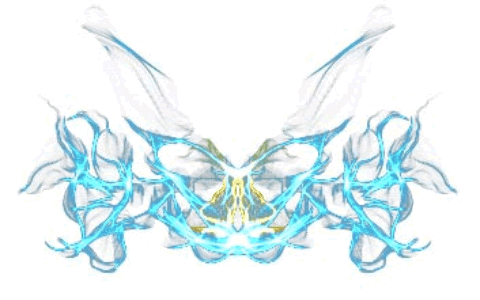1、结婚日子与老婆生肖相冲怎么办
相冲怎么了。
日子是你们两人过的,如果每天每时都在看是否相宜还是不宜,你真的连呼吸都要算了。
先跟你老婆好好说说,让她摆脱这个心结。
然后再一起劝劝岳母大人(最好联合岳父一起劝)。结婚是最大的喜事,什么都能冲掉,冲生肖什么的早就忽略不计了。
2、麻衣神相的祖师爷是谁?
麻衣子 , 姓李,名和,字顺甫。世居秦中,父李思温,号西宁君真人。生于晋穆帝升平元年(公元357年)三月十五日。史书记载他“绀发美质,臂力绝等,性明慧 ,契悟玄要。”意思是说麻衣子当年头发深青带红,长相英俊挺拔,体力超乎常人,天生 聪明才智,能深刻领悟道家玄学。因修行时常葛巾麻履,也就自称麻衣子。洞内冬暖夏凉 ,常年温度恒定在摄氏18度左右,四季如春,且空气不干不湿,令人感觉十分舒适,确是 一个绝佳的修身养性之地。晋孝武帝太元九年(公元384年),李和“二十有八,以学道 之志,告请亲友。常独行终南山,逢一道者倚阜危坐,谓真人曰:“吾久候汝,授以秘诀 。南阳之间,湍水之阳,有山灵堂,汝往之,当有异人率从拜附,可以拜神功苍茫。”真人神其言,往求灵堂于湍阳者久之,莫遂所在,遂遇樵者,欣然导入洞门……自是坐 洞中十有九年。……真人道术大行,乡人益神之。”麻衣子在此洞中修行十九年,终成正 果,享年一百有一岁。流传于世近千年的《麻衣神相》一书即传达室为麻衣子所作,对后 世的民间观相、勘舆之学影响极为深远,在我国道教史上地位十分重要,历来被世人十分 推崇
3、周易算命 四柱八卦用英文怎么说?
周易算命 \"Zhouyi Fortune-Telling\"
四柱八字或简称八字:Four Pillars of Destiny (Ba Zi)
八卦 The eight trigrams
易经概述:
The I Ching (Wade-Giles), or “Yì Jīng” (Pinyin); also called “Classic of Changes” or “Book of Changes” is one of the oldest of the Chinese classic texts.[1] The book is a symbol system used to identify order in chance events. The text describes an ancient system of cosmology and philosophy that is intrinsic to ancient Chinese cultural beliefs. The cosmology centres on the ideas of the dynamic balance of opposites, the evolution of events as a process, and acceptance of the inevitability of change (see Philosophy, below). In Western cultures and modern East Asia, the I Ching is sometimes regarded as a system of divination. The classic consists of a series of symbols, rules for manipulating these symbols, poems, and commentary.
易经的组成:(易经和易传)
By the time of Han Wu Di (汉武帝 Hàn Wǔ Dì) of the Western Han Dynasty (circa 200 BCE), Shi Yi was often called Yi Zhuan (易传 yì zhùan, “Commentary on the I Ching”), and together with the I Ching they composed Zhou Yi (周易 zhōu yì, “Changes of Zhou”).
易经的名字解释:
* 易 (yì), while as a verb it implies “to change“ or \'to exchange/substitute one thing for another\'.
* 经 (jīng) here means “classic (text)”, derived from its original meaning of “regularity” or “persistency”, implying that the text describes the Ultimate Way which will not change throughout the flow of time. This same character was later appropriated to translate the Sanskrit word \'sūtra\' into Chinese in reference to Buddhist scripture. In this sense the two concepts, in as much as they mean \'treatise,\' \'great teaching,\' or \'canonical scripture,\' are equivalent.
The I Ching is a \"reflection of the universe in miniature.\" The word \"I\" has three meanings: ease and simplicity, change and transformation, and invariability.[2] Thus the three principles underlying the I Ching are the following:
1. Simplicity - the root of the substance. The fundamental law underlying everything in the universe is utterly plain and simple, no matter how abstruse or complex some things may appear to be.
2. Variability - the use of the substance. Everything in the universe is continually changing. By comprehending this one may realize the importance of flexibility in life and may thus cultivate the proper attitude for dealing with a multiplicity of diverse situations.
3. Persistency - the essence of the substance. While everything in the universe seems to be changing, among the changing tides there is a persistent principle, a central rule, which does not vary with space and time.
— 易一名而含三义:易简一也;变易二也;不易三也。 commented on by Zheng Xuan (郑玄 zhèng xúan) in his writings Critique of I Ching (易赞 yì zàn) and Commentary on I Ching (易论 yì lùn) of Eastern Han Dynasty.
四柱:
* The four pillars is an English translation of the Chinese dynastic phrase \"Shi Chen Ba Zi\".
* The Chinese term (时辰八字 , Shi Chen Ba Zi) literally translates to \"Hour of the Eight Characters\".
* It is also under the Chinese term (四柱命理学, sei cyu ming lei hok) which literally translates to \"The Four Pillars Life-ology\".
* It is commonly referred to by the shortened names of \"Four Pillars\" or \"Ba Zi\". One of the most frequently used alternate phrase is \"Four Pillars of your birthday\".
八卦:
The Bagua (Chinese: 八卦; pinyin: bā guà; Wade-Giles: pa kua; literally \"eight symbols\") are eight diagrams used in Taoist cosmology to represent a range of interrelated concepts. Each consists of three lines, each either \"broken\" or \"unbroken,\" representing a yin line or a yang line, respectively. Due to their tripartite structure, they are often referred to as \"trigrams\" in English.
The trigrams are related to Taiji philosophy and the Wu Xing. The ancient Chinese classic I Ching consists of the 64 pairs of trigrams (called \"hexagrams\") and commentary on them. The interrelationships among the trigrams are represented in two arrangements, the Primordial (先天八卦), \"Earlier Heaven\" or \"Fuxi\" bagua (伏羲八卦), and the Manifested (后天八卦), \"Later Heaven,\" or \"King Wen\" bagua. The trigrams have correspondances in astronomy, astrology, geography, geomancy, anatomy, the family, and elsewhere.
The eight trigrams are: Qian 天, \"Heaven;\" Xun 风, \"Wind;\" Kan 水, \"Water;\" Gen 山, \"Mountain;\" Kun 地, \"Earth,\" Zhen 雷 \"Thunder,\" Li火, \"Fire;\" and Dui 泽, \"Lake.\"
4、大师您好,命理三合局“申子辰”水局,是怎么回事啊?能详细的解说一下么?
很想说爱你 :你好。
命理中三合局:
申(猴)、子(鼠)、辰(龙) 三合水局(子鼠是水,猴、龙都帮着鼠)
亥(猪)、卯(兔)、未(羊) 三合木局(卯兔是木,猪、羊都帮着兔)
寅(虎)、午(马)、戌(狗) 三合火局(午马是火,虎、狗都帮着马)
巳(蛇)、酉(鸡)、丑(牛) 三合金局(酉鸡是金,蛇、牛都帮着鸡)
辰、戌、丑、未土局
明白了吗。
5、我梦见观音菩萨了,请问什么意思
梦见佛是好的。出生菩提心经云:“若有梦见佛形像,诸相具足庄严身,众生见者应欢喜,念当必作调御师。” 圣一法师
因缘成熟的众生,多有从此信佛学佛,获福无量,受益无量。
《给新进的同修 - 初学导引》 http://hi.baidu.com/veeko/blog/item/4925df1662e49e5bf3de3203.html
初接触佛教可能会用到的一些资料 http://hi.baidu.com/veeko/blog/item/8b0dc544333fae44500ffe6b.html
6、做梦,梦到观音菩萨,是什么征兆?
梦中的菩萨代表着佛缘,多行善必有好报
梦见菩萨笑了,梦中菩萨的笑是对世人怜悯的象征。
7、梦到观音 和佛祖代表甚么
——这就是好梦呢!代表你与佛有缘。但凡梦到佛菩萨罗汉法师僧人寺院,一般来说,做这样的梦,都代表你与佛有缘,尽量不要过分在意梦的内容。因为我们现在所用的解梦方法,要么是周公解梦(中国),要么是西格蒙德·弗洛伊德(西方),他们虽然是人中之杰,但是佛却是“南无娑婆世界三界导师、四生慈父、人天教主、三类化身”这样的伟大所在,他的智慧与高度,远远不是周公及弗洛伊德所能仰望的。
所以一旦梦见佛菩萨罗汉、僧人寺院等,这些梦就不会有特别的含义,而是代表了你跟佛有缘。这些情景的出现,代表了你的上一世乃至更多的上一世因为种种缘故,佛在你的识海里种下了种子,然后这一世又因机缘巧合唤醒了记忆,告诉你应该与佛亲近,多做善事,好好修行。甚至我们在放生的时候,对着放生的动物念三皈依或南无阿弥陀佛六个字,都会植入这些动物的识海里,然后往生后蒙佛力加持指引转世为人,作为人的时候,也会做这些梦,来唤醒与佛的因缘。
佛菩萨罗汉都是得道的高人,从来不会去干涉和改变别人的命运,所谓“命自我造,运自我求”,佛菩萨罗汉会依照佛法给予我们指点如何前进的方向,教会我们的方法。因此,上一世乃至更久远的过去我们与佛有缘,因而种下的种子,今生通过特别的契因呈现在梦里,让你对佛升起亲近心和恭敬心,能够在这一世多做善事多积福德,而且,因为有这个种子在,如果修行,也能比别人更加有悟性、有灵根,也意味着我们今后如果做善事,积累的福报也会更加有利于我们。
——另外,也顺带普及一下做梦的原理。在佛教的眼里,梦分为四种:
一、宿业梦。
即过去生中所造的经历的重现,有时候梦中梦的这个境界,从来也没有见过,也没有想到过,为什么会作这个梦?这一生没想到没见过,前生曾经想过做过,我们的阿赖耶识里头有种子,种子起了现行。人在清醒时,意志比较容易控制;睡眠时意志控制能力就很弱,于是多生多劫之前的宿业,有时会现行,就会作很多奇怪的梦。
二、妄想梦。
这个就是“日有所思,夜有所梦”而导致,最为常见。
三、预兆梦。
预见未来要发生的事情的梦。原理很简单,就是三世因果所导致,只不过我们常人不能理解而已。在我们所处的空间,时间犹如只向前延伸而不回头的轴线;而在更高的维度,时间可以一览无余。所以在睡梦中思维没有现实生活中的局限,会不小心进入到更高维度(哪怕是一瞬间),看到了自己的未来。
四、鬼神入梦。
鬼神来托梦。地藏经说得十分清楚,假如我们梦到过去的人,尤其是家亲、眷属、朋友,都是这些人和你有因缘,因为遇到了困难及痛苦,想来求你帮忙的。所以最好的办法就是赶紧为他们持诵地藏经一至七遍,借助佛菩萨的加持之力,给予他们以帮助。
★《布宫号》提醒您:民俗信仰仅供参考,请勿过度迷信!

